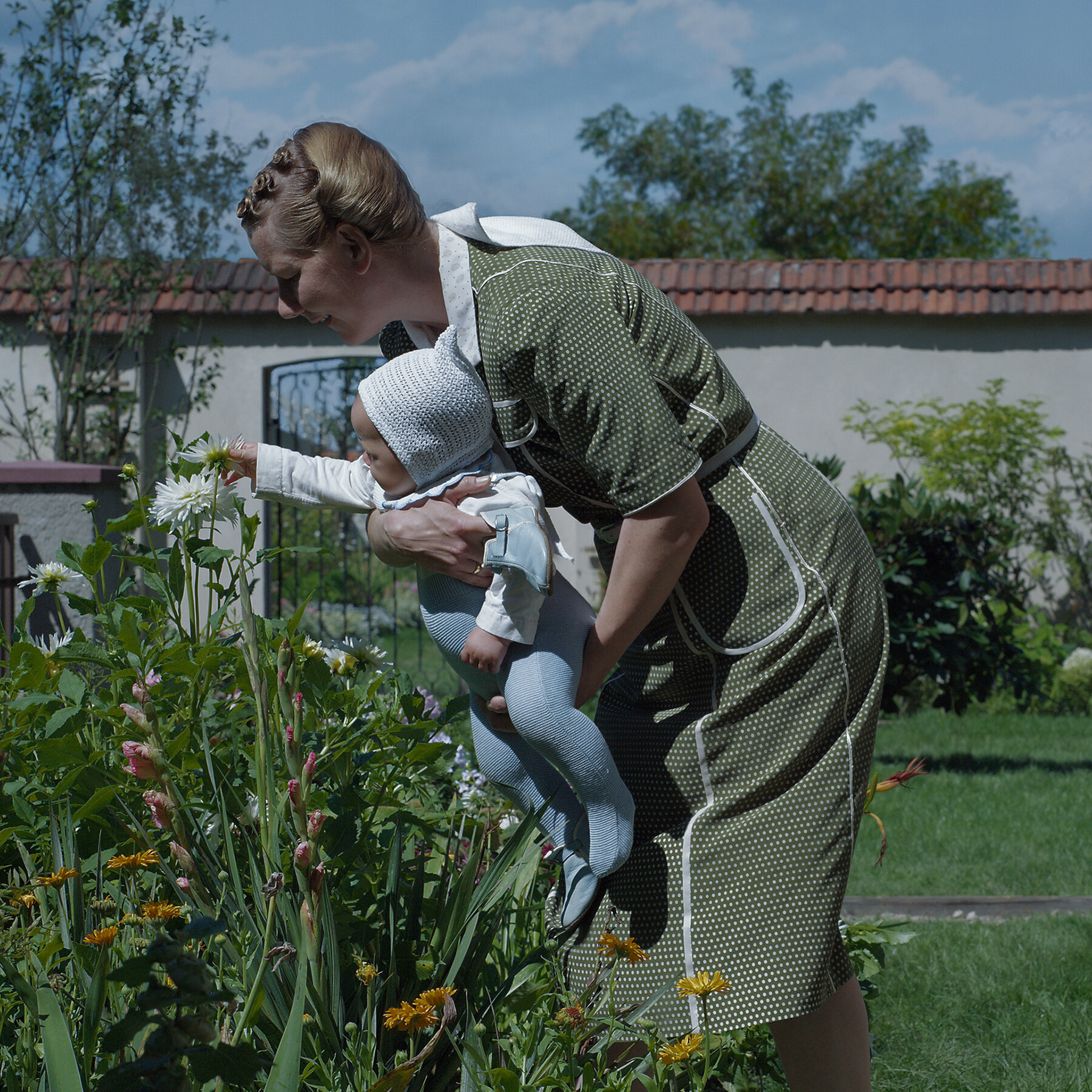The Zone of Interest shows us the banality of evil. Its high-ranking SS commandant, Rudolf Hoss and his family, live in their handsome house. The garden is lush with blooms.
They lace antisemitic bile into their polite coffee-klatch chatter. And, through a deft hand with sound (much of it recorded from outside the camp), Glazer and his filmmaking team convey hell’s hum as background noise.
What is The Zone of Interest?
A towering study of complicity in the most horrific crimes of the 20th century, The Zone of Interest finds Under the Skin director Jonathan Glazer dissecting the banality behind unforgivable brutality. Based on Martin Amis’ 2014 novel, the film follows Nazi commandant Rudolf Hoss and his wife Hedwig as they try to build their dream family life in a house and garden right next to Auschwitz. It’s an extraordinary movie, a formally precise yet shattering cinematic intervention that depicts the evils at the heart of the Holocaust as clearly and plainly as any movie ever has.
Shot with locked down cameras and wide-angle lenses from vantage points that cover the majority of each room (Glazer likened it to surveillance footage) and no conventional close-ups, The Zone of Interest gives us only what we need to understand how these people could so easily be drawn into the murderous machinery of the Third Reich. Christian Friedel and Sandra Huller deliver fine performances as the Hosses, but it’s Hedwig who’s truly depraved, displaying her callous disregard for human misery with each meal she prepares or swim she takes in her backyard pool.
Sound design is especially effective, as droning notes and whispers mingle with the gunshots and screams that echo around the camp walls. Then there’s the ominous hum, the grinding of machinery and the smoke from the crematoria that permeates the air. The Zone of Interest is a powerful, disturbing and necessary confession about complicity in one of the world’s darkest genocides.
Glazer’s film is a warning, not only about history but about our very capacity for evil. By focusing on a couple’s soul-sick existence, he gives us the courage to reckon with history’s darkest moments. With the drumbeat of fascism rising once again, this is a movie to see and consider.
Is The Zone of Interest a Good Movie?
A24 has released a new trailer for The Zone of Interest, the Oscar-nominated Holocaust drama from director Jonathan Glazer (Sexy Beast, Birth, Under the Skin). This adaptation of Martin Amis’ 2014 novel stars Christian Friedel as the real-life SS commander Rudolf Hoss and his wife Hedwig, with Sandra Huller, Freya Kreutzkam, Max Beck, Imogen Kogge, and Ralph Herforth. It premiered at the 2023 Cannes Film Festival and was nominated for the Grand Prix, the fest’s second-highest prize.
While The Zone of Interest doesn’t shy away from depicting the atrocities committed by the Nazis, it is less interested in showcasing their crimes as such and more focused on showing how close to ordinary lives the brutal death camps came. Hedwig, for instance, can be quite the monster herself when she scolds a servant for spilling water on the floor or when she finds two settings at the dinner table instead of one (one for herself and another for her mother). Her callous disregard for the humanity of her fellow human beings is made all the more egregious by the fact that they live next door to Auschwitz.
Glazer’s approach is ruthless, but it’s also brilliant. He knows that the story of this couple’s existence, which he adapted obliquely from the Amis novel, is one that needs to be told without revealing its specifics. The film’s scenes of everyday family life are constantly encroached upon by unspeakable horrors, like smoke pouring from the incinerators or a low, indistinguishable roar coming from outside their garden wall.
But it’s the movie’s sound design that truly elevates The Zone of Interest above other Holocaust films that have come before it. It’s a weapon of unparalleled power, created by composer and musician Mica Levi and sound designer Johnnie Burn, who previously worked with Glazer on Under the Skin and Yorgos Lanthimos on The Lobster and The Killing of a Sacred Deer.
Is The Zone of Interest a Bad Movie?
The Zone of Interest is the rare kind of film that provokes a viscerally intense response in its audience. It’s the kind of movie that can cause a hive-like reaction in those viewers who have not seen it before, and it’s even more potent for those who went into the theater knowing almost nothing about it (other than that it was a loose adaptation of Martin Amis’ novel).
It’s also one of the year’s most challenging films, both because of its subject matter and because of its approach to the material. It is, by design, a film that is difficult to categorize. It is a Holocaust movie that doesn’t show you any blood, a study of the banality of evil and a cautionary tale about fascism. It’s a film that demands that you reckon with history and human nature, and that, in today’s world where the drumbeat of fascism is once again rising, it serves as a warning.
Glazer’s film is set in the 40-square-kilometer area around Auschwitz that the Nazi SS called “the zone of interest” or, more specifically, the two-story stucco villa and manicured garden occupied by Rudolf and Hedwig Hoss. The plot revolves around a series of conversations, meetings and interactions that underscore the terrifying power of obfuscation. Orders are delivered in chilling code, and the line between the two places is all but blurred — just as it is when we are oblivious to the horrors taking place right outside our doors.
All of this is rendered with a remarkable degree of subtlety, largely due to the brilliant work of sound designer Johnnie Burn. His is a haunting and exquisite audio experience that’s reminiscent of the haunting soundscapes in Under the Skin and the films of Yorgos Lanthimos, among others. It’s not meant to dazzle or awe, but it does immerse us in a mood, and that mood is both unsettling and devastating.

